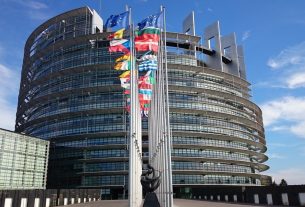The European Economic and Social Committee has urged the EU and the Member States to work to clarify terms of employment in the platform economy, as a lack of standardised definitions of both workers’ and employers’ status can complicate the application of labour legislation and many labour protection rights.
The main concepts that need clarifying are those defining platforms as “supply and demand intermediaries” rather than “employers”. This leads to workers being considered as “self-employed” rather than “employed”, often stripping them of legal and social protection, including health and safety at work or employment protection, the importance of which has come to the fore in particular during the current pandemic.
As their yardstick for determining whether a worker is employed or self-employed, the EESC suggested that the EU and Member States should adopt the concept of economic dependence and subordination. It also said that the EU and Member States should give careful consideration to adopting the principle that a worker is regarded as an employee in the absence of proof to the contrary. However, genuinely self-employed workers should be able to keep that status if they so wish.
Identifying work flexibility and autonomy, supplementary income for workers and easier access for vulnerable people to employment as among the benefits brought by the platform economy, the EESC also warned of the risks, which were not be underestimated.
Aside from workers who risk having their basic rights denied, including their rights to organise themselves and to collective bargaining, there are also threats for society as a whole, given the increased risk of competition based on undercutting social standards. This also has harmful consequences both for employers, who are subject to unsustainable competitive pressure, and for Member States, who lose tax revenue and social security contributions.
The EESC put forward its arguments in the opinion Fair work in the platform economy, adopted at its September plenary session and drafted at the request of the German EU presidency. The rapporteur of the opinion was the Portuguese member Carlos Manuel Trindade. (ll)












